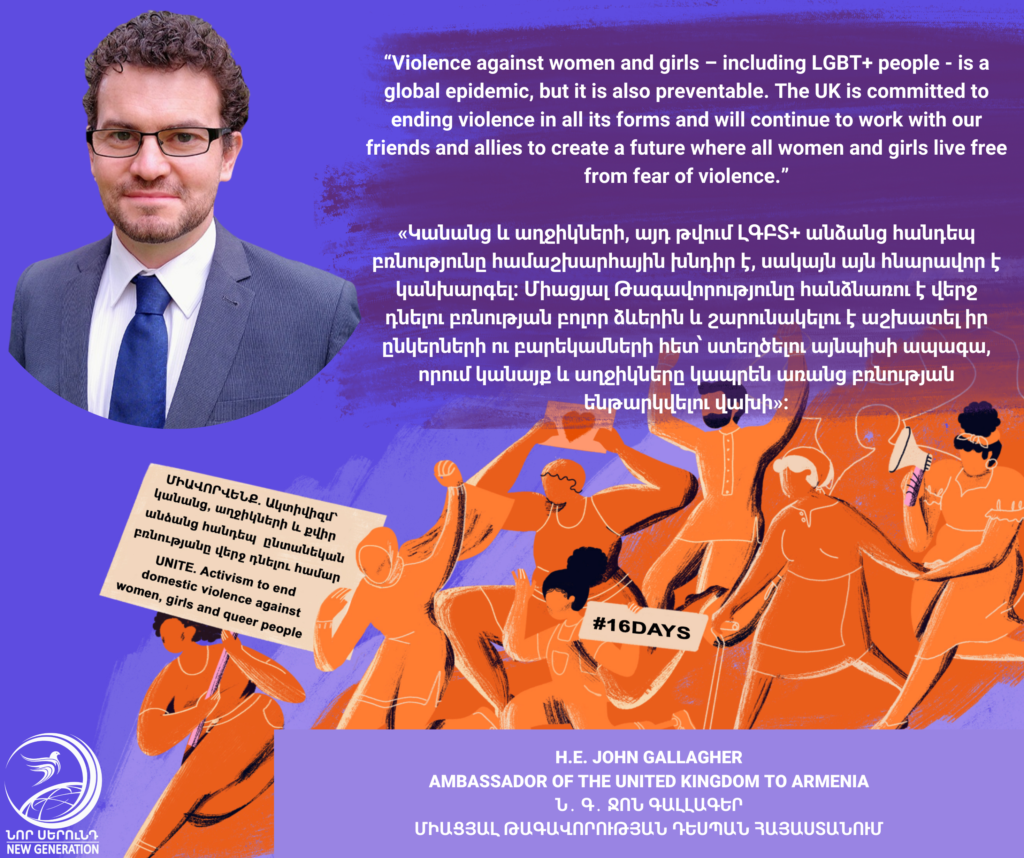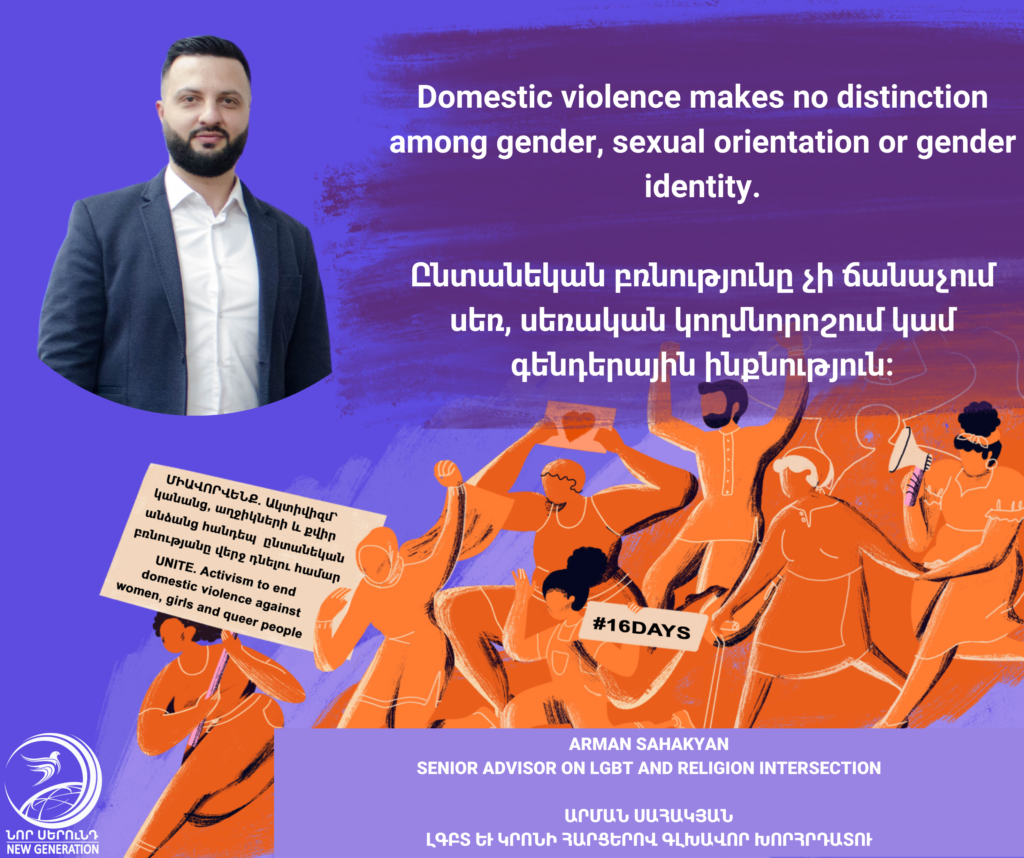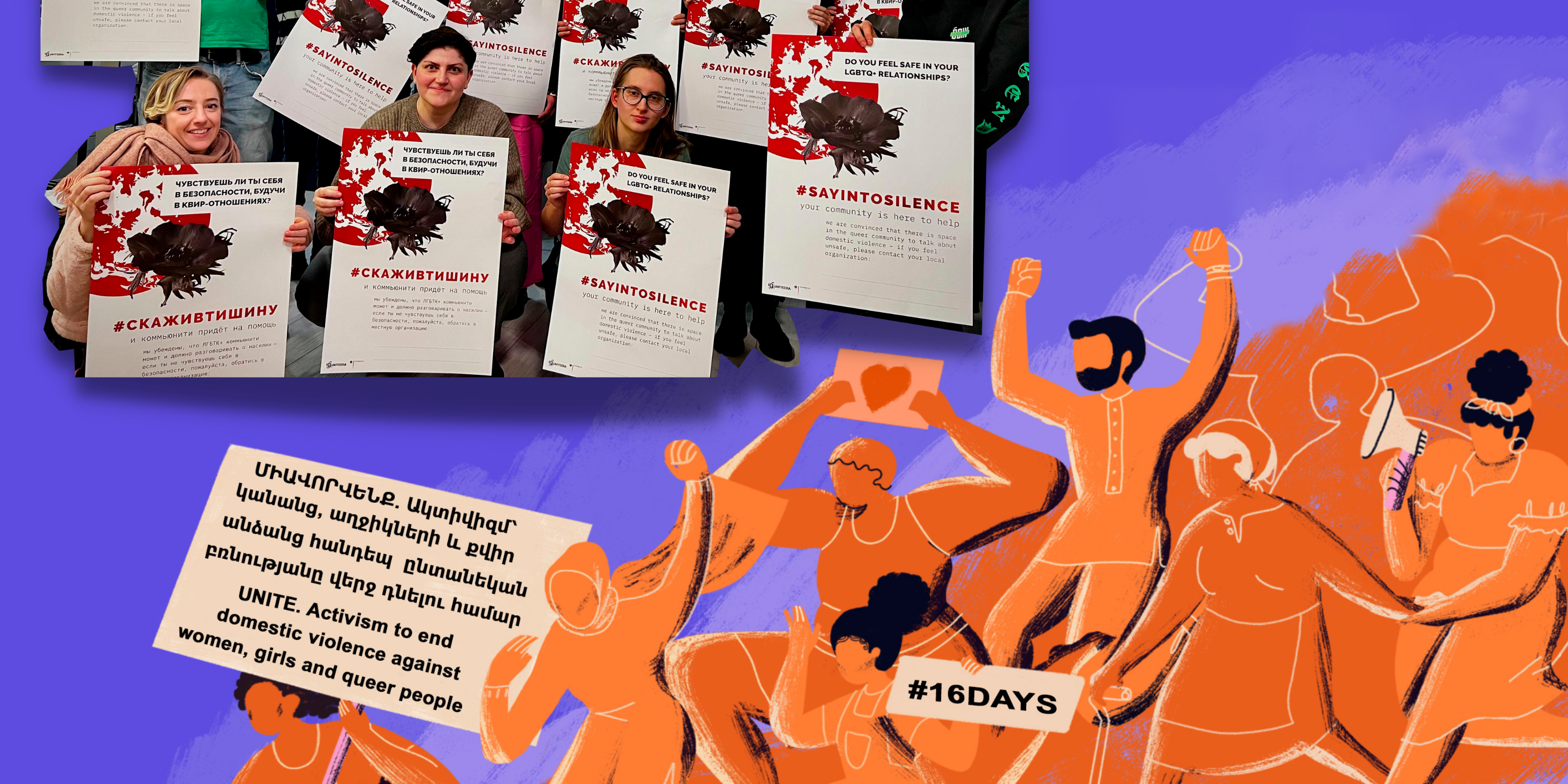Created in 1998, New Generation Humanitarian NGO is one of the oldest non-profits in Armenia working on an LGBTIQ+ agenda. In 2022, they held a campaign focused on the problem of violence against queer women. Let’s have a closer look with Levon Chilingaryan, who is the communication officer of the organization.
Tell us a bit about your organization and the context in which you work.
Our main areas of work are human rights and advocacy, healthcare, capacity building, and humanitarian support.
We also organize trainings for decision makers, medical staff, police officers on communicating and working with LGBTIQ+ people; and for the media on covering LGBTIQ+ topics.
In Armenia, state-led organisations and civil society organisations don’t talk openly about LGBTIQ+ rights. As an example, last year, for IDAHOBIT (the International Day against LGBTQI+phobia), almost all foreign diplomats attended our event. However, the local officials (from the Ministries of Justice or Healthcare) declined our invitations, saying they were too busy. That’s why we mostly work with international organisations and Embassies, because they are not afraid to talk about LGBTIQ+ issues. However, we also continue to advocate for the human rights of LGBTIQ+ people with the government of Armenia.
What is this campaign about?
November 25 is the International Day for the Elimination of Violence against Women and Girls. With our campaign, we wanted to also highlight the problem of violence towards queer women, including in queer relationships.
We prepared an orange-coloured template (the official color of this Day) where we inserted photos and quotes from different people and then posted these images on our social media with a short message explaining the importance of the day.
All the participants of the campaign were people with influence, and they were able to get this message across to the broader society. Usually (at least in Armenia), when people hear something related to LGBTIQ+ topics, it provokes aggression and hatred. But when influential people talk about it, something may change in people’s minds.
How did you choose the messengers?
For this campaign, we sent invitations to people on our mailing list, those we know well and have a history of working together. We asked them to send a short message and a photo we could insert in our template and use in our communication.

How would you define the target audience for this campaign?
I’d say that the campaign mostly targeted people outside the community, but also included the community itself, because queer families in Armenia are hugely influenced by the traditional heteronormative families, where there is also a lot of domestic violence.
How did you disseminate the information?
We published these posts on our social media (Instagram and Facebook) and on our website. The participants of the campaign tagged themselves on their social media accounts, where the outreach is bigger.
The media didn’t cover the campaign because they are usually only interested in negative stories.
Were you happy with the results?
Honestly, we did not expect that our campaign would be so successful. We thought that maybe a couple of people would respond to our call. But fortunately, the majority agreed to participate.
Another pleasant surprise was that many of the speakers posted the quotes and photos on their social media pages, on the pages of their Embassies and organizations, for example, UNAIDS or the Armenian WHO office.
The reach was good, which is usually the case on our Facebook page. But there were also quite a lot of likes, which is surprising, as people are often reluctant to like our posts, for fear of being discovered/outed or stigmatized just for supporting us.

Any other reflections?
Surprisingly enough, there were no negative comments on social media. Maybe it is related to the fact that there were a lot of orange images in the feeds on that day, and people overlooked ours.
This campaign gave us more visibility. More people have started visiting our website.
Another long-term result is that more diplomats and representatives of international organizations now attend our events. For example, the US Ambassador attended our IDAHOBIT event this year for the first time.
Talking about violence in relationships, we always have to remember that the latter exists in queer families, which also needs to be tackled, as well as the violence in heteronormative families.







